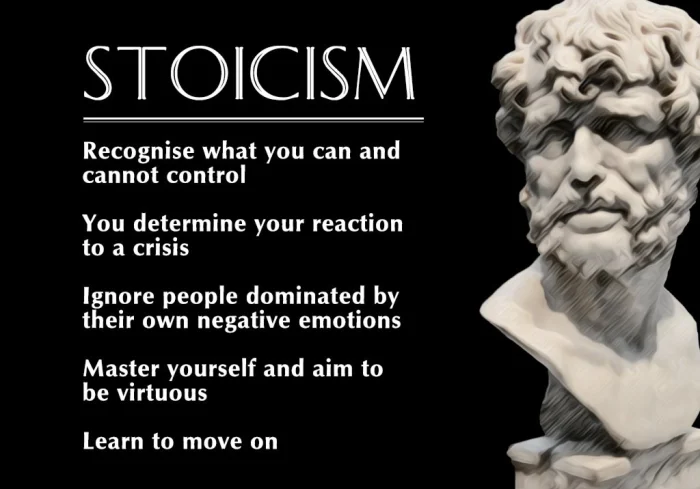My intial sarcastic quip:
I sense 'White Horse prophecy' notions here...
Contributor 2:
That's because the founders understood that it is far easier to rule a people who are already cowed by a fear of some almighty god than a bunch of atheists who don't have the additional incentives of avoiding hell. If they had planned for an atheistic nation the Constitution might look something like Ida Amin might have drafted.
Contributor 3:
You might want to look at "The Secret Destiny of America" by Manly P. Hall, very esoteric author
Contributor 4
Contributor 1, have you seen any sociological study that supports your view, that a belief in an afterlife (or creator) makes people more law abiding? let alone more moral, honest, less avaricious, less ambitious, revengeful or more gallant? Or is ...that your view, it is not clear to me. If the "incentives of avoiding hell" actually worked for people on the average, would our crime rates be lower? since about 90% or our US population (less in Europe) hold some kind of religious views. Or is this kind of belief best suited to ignorant people who can't follow their own enlightened hopes? Is it intellectually honest to believe in an afterlife or god in general just because it might make society or The Constitution work better? And which conception of afterlife is most effective in creating order in society? since there are many and many are mutually exclusive and contradictory? Certainly we have added to our constitution since the time of President John Adams, and we have more issues that need to be voiced in it, but to say that religion is an effective "bridle" is a spurious conclusion in my mind, historically speaking. In my experience, people who are well informed, intelligent enough and honest enough to be atheists, are capable of living their lives morally and ethically based on other appropriate incentives.
My thoughts in Progress:
Herein lies another fork...it is interesting to equate intelligence, if I am understanding the inference correctly, as only available to those courageous enough to be atheists...Although this removes religion it strengthens the morality aspect of the quote, imho.
I observe many that are atheists, agnostics, or religious (in all their various spectrum's and loquacious flavors) as having an ability to acquire knowledge. To me it isn't the acquisition of knowledge that is the most important (important to understand I have not introduced the element of 'truth' either), it is how one uses that commodity (knowledge) to their advantage and that of positively/negatively affecting others (it must be considered that positive/negative or other outcomes will exist and are in effect measurable). The measured results allow for bias and interpretation to then be subjectively analyzed by the consumer. Further, how is the worth of knowledge being interpreted, some knowledge may be germane or imperative to said circumstance.
I am curious to what the measurement standard is and how intelligence is being measured. If one asserts, in order to be intelligent, you must be an atheist, it seems a narrow and an incomplete vantage point. The difficulty lies in proving who is right/wrong etc.
To further complicate this matter, the difficulty in this assumption is that Mr. Adams is dead and therefore we cannot communicate with him directly, or can we ( thought I'd throw that in to humor us all). Second we must assume, if research has been done to then assert that Mr. Adams was a moral and religious man, either we can hope the assertions and research are accurate, those that did the research didn't make false assumptions, and no other skew was introduced.
To me the quote is well balanced and asserts that in order for the Constitution to work, morality and religious acceptance by its potential subjects was key and those values help drive that document. Further, it asserts it is inadequate to serve others.
Since it was mentioned....crime is not reserved because one labels oneself as atheist or religious ("incentives of avoiding hell"), sad experience lends itself to proving the naive just as such in believing that. In fact, many atheists I know claim morals are worthless, and religious types who claim to be moral when they can't even define morality, even in a simple matter. As for a "bridle" and religion being peddled as such, we should debase that thought and return what government truly is. It is an organizational tool to wield power, influence and point of view upon a citizenry that decides to abide by said government. Historical evidences
I observe many that are atheists, agnostics, or religious (in all their various spectrum's and loquacious flavors) as having an ability to acquire knowledge. To me it isn't the acquisition of knowledge that is the most important (important to understand I have not introduced the element of 'truth' either), it is how one uses that commodity (knowledge) to their advantage and that of positively/negatively affecting others (it must be considered that positive/negative or other outcomes will exist and are in effect measurable). The measured results allow for bias and interpretation to then be subjectively analyzed by the consumer. Further, how is the worth of knowledge being interpreted, some knowledge may be germane or imperative to said circumstance.
I am curious to what the measurement standard is and how intelligence is being measured. If one asserts, in order to be intelligent, you must be an atheist, it seems a narrow and an incomplete vantage point. The difficulty lies in proving who is right/wrong etc.
To further complicate this matter, the difficulty in this assumption is that Mr. Adams is dead and therefore we cannot communicate with him directly, or can we ( thought I'd throw that in to humor us all). Second we must assume, if research has been done to then assert that Mr. Adams was a moral and religious man, either we can hope the assertions and research are accurate, those that did the research didn't make false assumptions, and no other skew was introduced.
To me the quote is well balanced and asserts that in order for the Constitution to work, morality and religious acceptance by its potential subjects was key and those values help drive that document. Further, it asserts it is inadequate to serve others.
Since it was mentioned....crime is not reserved because one labels oneself as atheist or religious ("incentives of avoiding hell"), sad experience lends itself to proving the naive just as such in believing that. In fact, many atheists I know claim morals are worthless, and religious types who claim to be moral when they can't even define morality, even in a simple matter. As for a "bridle" and religion being peddled as such, we should debase that thought and return what government truly is. It is an organizational tool to wield power, influence and point of view upon a citizenry that decides to abide by said government. Historical evidences








No comments:
Post a Comment